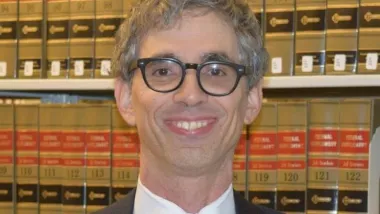As gas prices keep rising, the public demand for buses and trains keeps growing. Yet in some cities, government is actually cutting back transit service, because rising gas prices make transit vehicles more expensive to operate.(1) But as a matter of substantive policy, service reductions are not only less desirable than service increases, but also less desirable than fare increases. As a bus rider, I’d rather pay $1.50 and know that my service is safe from fiscal crises than pay $1 and worry that my service might be reduced or canceled next month. Moreover, if fairness means spreading pain equally throughout the population, it is fairer to have everyone pay a little more than to have some neighborhoods be left without service.
As gas prices keep rising, the public demand for buses and trains keeps growing. Yet in some cities, government is actually cutting back transit service, because rising gas prices make transit vehicles more expensive to operate.(1) But as a matter of substantive policy, service reductions are not only less desirable than service increases, but also less desirable than fare increases. As a bus rider, I'd rather pay $1.50 and know that my service is safe from fiscal crises than pay $1 and worry that my service might be reduced or canceled next month. Moreover, if fairness means spreading pain equally throughout the population, it is fairer to have everyone pay a little more than to have some neighborhoods be left without service.
Accordingly, I would like to throw this idea out for discussion: a state government (or maybe even the federal government) could require as a condition for its financial support that local transit agencies be barred from reducing existing service (by which I mean shutting down a transit route entirely, or significantly reducing its hours without providing compensating service).(2) Local governments would still have plenty of options in tough times; they could (a) run their agencies more efficiently, (b) reduce government spending in other areas, or (c) raise fares. But they could not cut service. The advantage of this proposal for transit users is obvious: they could rely on the status quo in deciding where to live and do business - and if transit users did have to sacrifice, they would all sacrifice equally through higher fares. After all, we don't close highways every time fiscal times get tough- so why eliminate bus routes?
The most obvious problem with my proposal is that perhaps higher levels of government should trust local transit agencies to decide which routes are efficient and which are not. On the other hand, local governments have a strong incentive to reduce transit service (especially bus service) rather than to cut spending in other ways: many other beneficiaries of government largesse (such as transit unions and road builders) are wealthier and more organized than bus riders, so a local politician who wants to be reelected is more likely to stick bus riders with the costs of fiscal crisis than to gore some other ox.
So if we trust local transit agencies, we will get rid of some underpopulated bus routes- but on balance, we'll wind up with transit service that is less stable and less extensive. And unstable bus service creates its own inefficiencies: the more bus service changes, the harder it is for riders to keep up with service, which in turn means fewer riders in the long run.
Even transit critics have reason to support my proposal. A common argument against new rail systems is that they take money that could more efficiently be spent on buses.(3) My proposal wouldn't prevent the construction of new rail systems (nor would I want it to). But it would prevent transit agencies from reducing bus service in order to pay for rail service.
(1) For a story on this issue, see http://planetizen.com/node/34036
(2) Of course, there should probably be an exception for experimental bus service, so that local governments could have the flexibility to experiment with new routes here and there. Perhaps a statute could cover bus routes as soon as they have been in effect for over a certain period of time- say, six months.
(3) See, e.g., http://www-pam.usc.edu/volume4/v4i1a6print.html , Sec. III.

Planetizen Federal Action Tracker
A weekly monitor of how Trump’s orders and actions are impacting planners and planning in America.

Chicago’s Ghost Rails
Just beneath the surface of the modern city lie the remnants of its expansive early 20th-century streetcar system.

Amtrak Cutting Jobs, Funding to High-Speed Rail
The agency plans to cut 10 percent of its workforce and has confirmed it will not fund new high-speed rail projects.

Ohio Forces Data Centers to Prepay for Power
Utilities are calling on states to hold data center operators responsible for new energy demands to prevent leaving consumers on the hook for their bills.

MARTA CEO Steps Down Amid Citizenship Concerns
MARTA’s board announced Thursday that its chief, who is from Canada, is resigning due to questions about his immigration status.

Silicon Valley ‘Bike Superhighway’ Awarded $14M State Grant
A Caltrans grant brings the 10-mile Central Bikeway project connecting Santa Clara and East San Jose closer to fruition.
Urban Design for Planners 1: Software Tools
This six-course series explores essential urban design concepts using open source software and equips planners with the tools they need to participate fully in the urban design process.
Planning for Universal Design
Learn the tools for implementing Universal Design in planning regulations.
Caltrans
City of Fort Worth
Mpact (founded as Rail~Volution)
City of Camden Redevelopment Agency
City of Astoria
City of Portland
City of Laramie






























